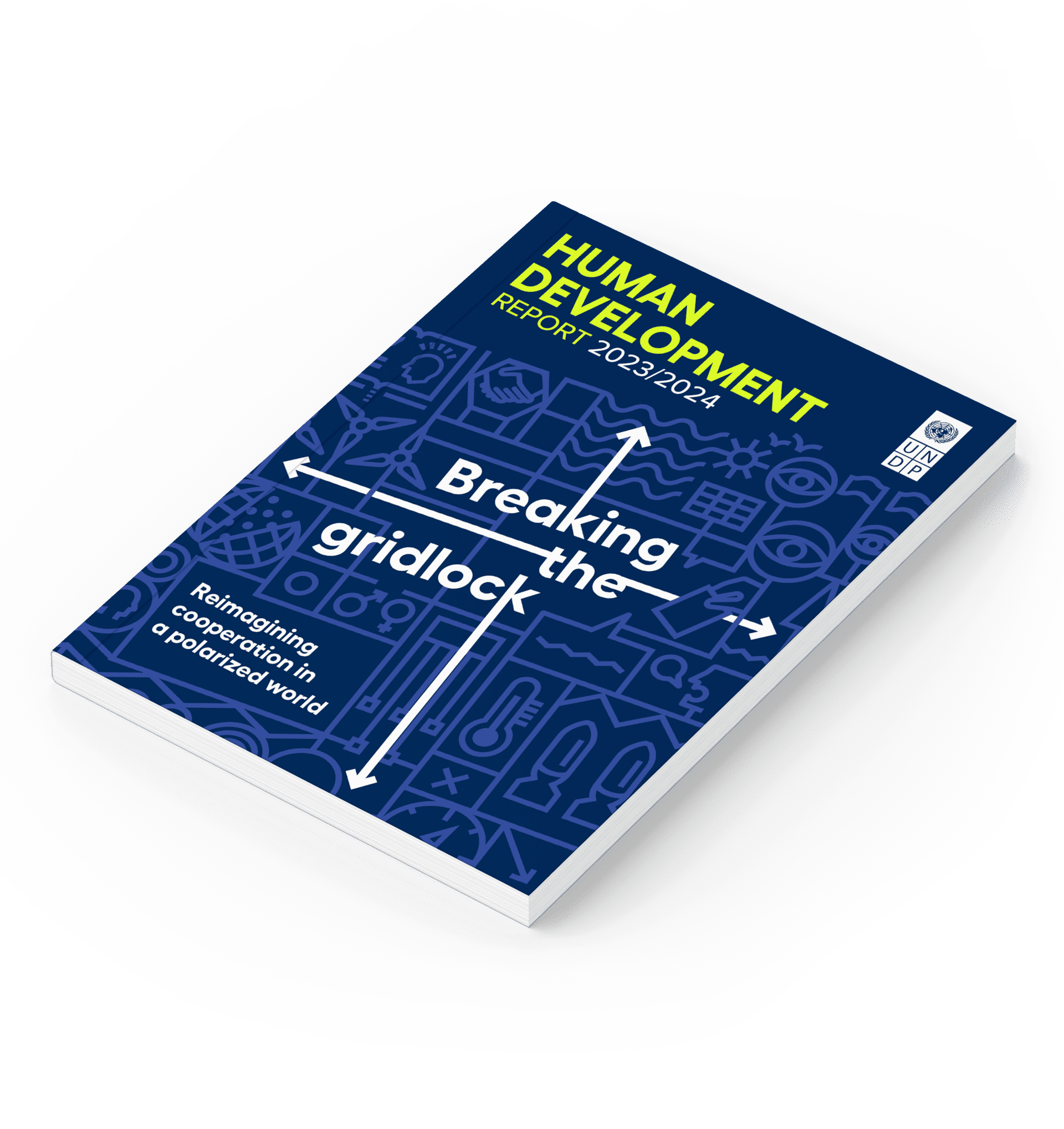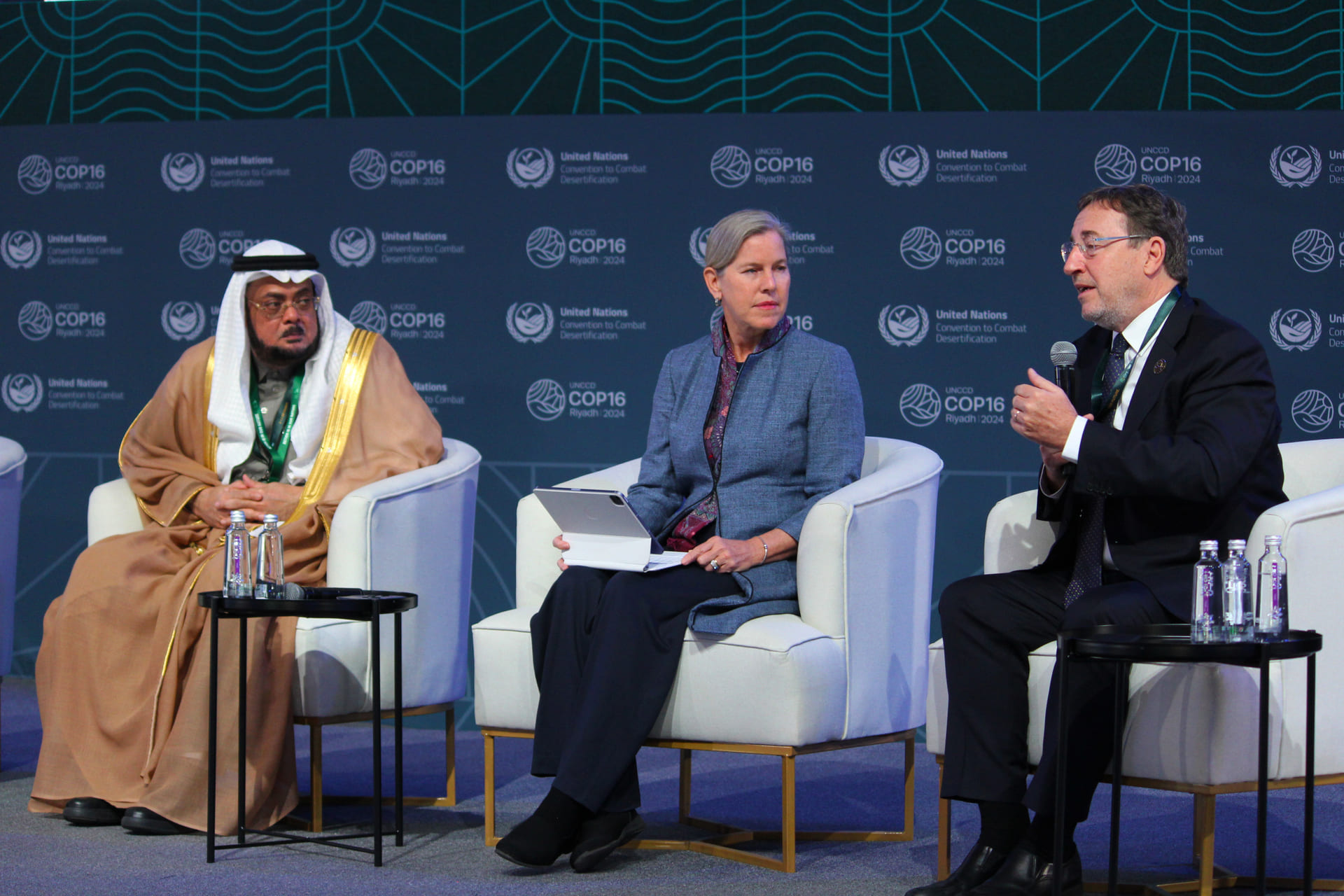
Goal 2022–2025:
Promote over $1 trillion more in public expenditure and private capital for the SDGs
Where we are in 2024:
Over $867 billion in public and private finance, projected at $1.1 trillion by the end of 2025
Since 2022, direct support from UNDP has yielded:
✓ $481.5 billion in public sector finance
✓ $385.5 billion in private sector finance
Our four moonshots—Poverty, Governance, Energy and Finance — are powered by three enablers to accelerate development impact.
Innovation is embedded across UNDP’s work, from the global to the local level. Our Accelerator Labs have sourced over 6,000 development solutions across 115 countries. Some 70% of these experiments have gone to scale — a remarkable 2-in-3 success rate. Around half of Lab partners come from the private sector.
In Ghana and Nigeria, the Accelerator Labs jumpstarted a $25 million partnership with the Mastercard Foundation to back 10,000 young SDG innovators. UNDP’s timbuktoo initiative is seeking to scale up the innovation ecosystem in Africa by supporting 10,000 tech start-ups. In 2024, it created innovation hubs and satellite university pods in 13 African countries.
Read moreSDGs supported through UNDP’s Finance Moonshot

















Advancing NextGen
Since 2017, Youth Connekt Africa has empowered more than 12 million youth by giving them access to role models, peers, resources, technologies and skills. In Asia and the Pacific, Youth Co:Lab, a partnership between UNDP and the Citi Foundation, has unleashed the dynamism of 28,000 young social entrepreneurs by supporting innovations that advance the SDGs.
Achieving the SDGs for people and the planet will require investments at an unprecedented scale. Recognizing the growing imperative to boost SDG financing, UNDP established the Sustainable Finance Hub in 2019. Since then, the Hub, working in collaboration with public and private partners, has helped promote over $867 billion in investment in the SDGs. According to AidData’s Listening to Leaders Survey of more than 11,000 development partners in 147 low- and middle-income countries, UNDP was identified as the single most helpful donor in the area of development finance among its comparators.
We scale up investments by:
As a future-smart organization, UNDP continued its strong track record of delivering value in 2024, transacting $4.8 billion* efficiently, accountably and transparently
*Based on preliminary 2024 financial data.
UNDP surpassed 94% of benchmark indicators on the UN System-Wide Action Plan (UN-SWAP), which measures performance on gender equality.
Our continued progress on greening our operations included a 22% cut in vehicle fuel emissions since 2018, with one-third of offices acquiring electric and hybrid vehicles and over 50 offices introducing solar power.
In 2024, UNDP conducted a thorough diagnostic analysis of its business model to assess the efficiency, effectiveness and financial sustainability of its operations. Recommendations from the review are informing strategic actions to maintain and further enhance our institutional effectiveness.
Received its 19th clean audit from the UN Board of Auditors. Over the past 20 years, UNDP has stewarded over $100 billion in total revenue based on the highest standards of accountability and transparency.
We strengthened integrated risk management at all levels, from projects to corporate-wide. Advanced tracking tools assessed emerging issues, including AI and a new Integrated Risk Module for Results Management provided granular data on threats and opportunities.
UNDP achieved exceptional performance scores among 51 UN organizations across five categories of the UN 2.0 System-Wide Assessment — digital, data, foresight, innovation and behavioural science.
Our ongoing efficiency gains free-up more funds for development results. UNDP invested 92 cents of every dollar in development programming and services in 2024, up from 88 cents in 2018*
*Based on preliminary 2024 financial data.
UNDP’s 2024 Human Development Report, Breaking the Gridlock: Reimagining Cooperation in a Polarized World, confirmed our global thought leadership on a topic of wide concern. Within 24 hours of its launch, over 1,000 media stories on the report had appeared in leading outlets. Since then, the report has been read by 500,000 people from all regions, making it one of the year’s leading references on global development. It has also been cited in academic articles and covered by media outlets worldwide with a combined potential reach of over 3 billion unique monthly visitors.
UNDP’s global thought leadership extends to innovative data initiatives such as Human Climate Horizons, which delivers regular subnational projections on human development under different climate change scenarios, and the Multidimensional Poverty Index Report.

UNDP works with 140 countries to act on climate change, bringing a wealth of experience to the “Rio Trio” conventions on climate change, biodiversity and land degradation in 2024. On the global stage, we demonstrated the possibilities for change by highlighting our work on nationally tailored climate initiatives across 16 countries.

Photo: UNDP Nature